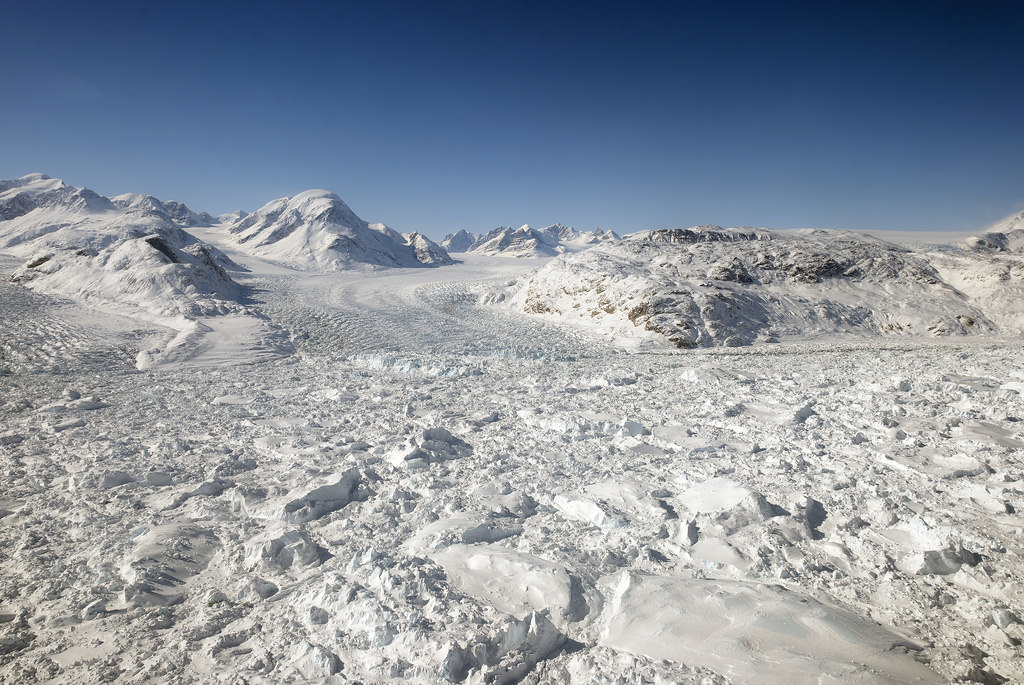Greenland's glaciers may contribute more to future sea level rise than once thought, despite earlier reports that their steady seaward advance is a bit slower than expected. This is just more sobering news on the current state of Earth's ice from the same researchers that recently announced the
"unstoppable" retreat of West Antarctic glaciers.
Using data collected by several international radar-mapping satellites and NASA's airborne
Operation IceBridge
surveys, s
cientists at NASA and the University of California, Irvine have discovered deep canyons below the ice sheet along Greenland's western coast. These canyons cut far inland, and are likely to drive ocean-feeding glaciers into the sea faster and for longer periods of time as Earth's climate continues to warm.
Some previous models of Greenland's glaciers expected their retreat to slow once they receded to higher altitudes, making their overall contribution to sea level increase uncertain. But with this new map of the terrain far below the ice, modeled with radar soundings and high-resolution ice motion data, it doesn't seem that the ice sheets' recession will halt any time soon.
According to the team's
paper
, the findings "imply that the outlet glaciers of Greenland, and the ice sheet as a whole, are probably more vulnerable to ocean thermal forcing and peripheral thinning than inferred previously from existing numerical ice-sheet models."
Read more: Scientists Set Their Sights on Arctic Ice Loss
Watch a video of the new topography map below:
Many of the newly-discovered canyons descend below sea level and extend over 65 miles (100 kilometers) inland, making them vulnerable -- like the glaciers in West Antarctica -- to undercutting by warmer ocean currents.
The team's findings were published on May 18 in a report titled *Deeply Incised Submarine Glacial Valleys Beneath the Greenland Ice Sheet* in the journal Nature Geoscience.
Source: NASA/JPL press release & University of California,Irvine News
What would happen if all the ice on land melted into the ocean? Find out what the world would look like here.
 Universe Today
Universe Today
